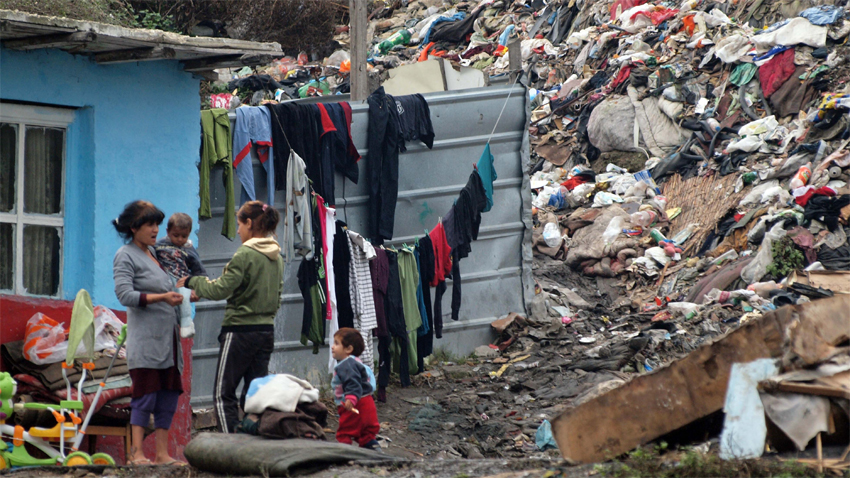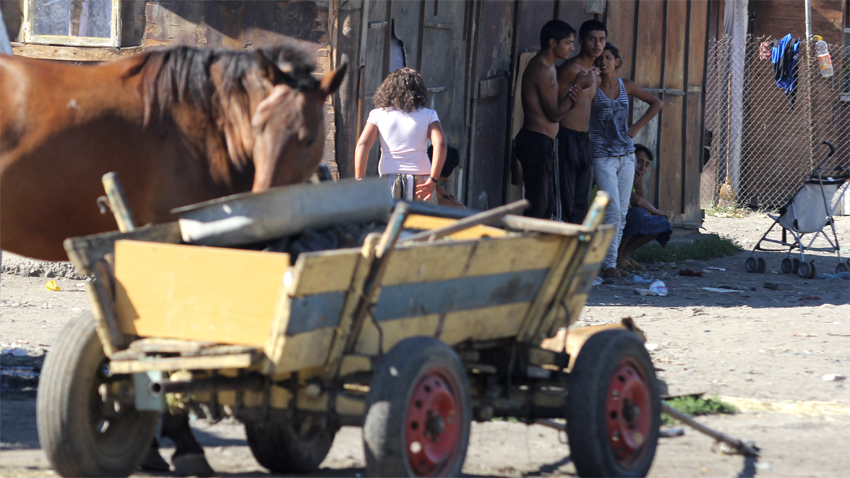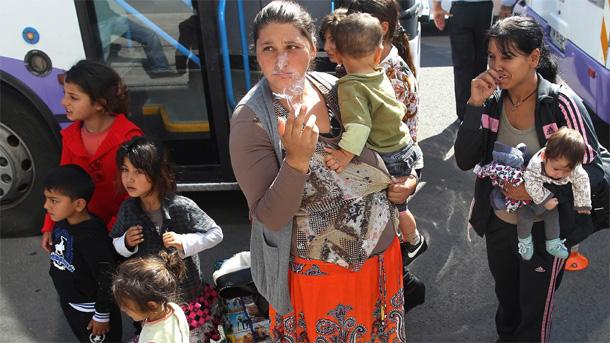A Bulgarian anecdote tells about the greatest dream of the Roma minority – to cut up and sell the Eiffel Tower as scrap metal. While this is just a joke, the truth is that in the autumn of 2013 French police arrested near Paris Roma from Romania and Bulgaria as they were stealing copper cables. Probably the most prosperous profession in Bulgaria is that of the manufacturer or retailer of keys and padlocks.
In fact, those members of society, mostly Roma who earn a living by collecting and selling as scrap metal objects, often steal from rural houses and yards, sometimes using violence. There are striking cases when one locks their rural cottage in autumn, just to find rubbles in the spring, as the walls were destroyed in order to get the reinforcing metal rods inside. After a great number of cases of violent crimes against elderly people too, the Bulgarian police finally started taking some measures. Effects, however, will be temporary as the Roma issue is extremely complex and their integration cannot be delayed.

No matter how much effort and European money is spent for the Roma integration in society, the results are not optimistic. High unemployment among the Roma leads them to desperate poverty and crime. Amid continuing demographic crisis the Roma quickly multiply but the local labor market could not use these people. The main reason is the lack of education.
A study of the Social Ministry two years ago showed that over 7 percent of Roma had never attended school. 8.3 percent have not completed their elementary education. Some 10 percent managed to finish the 4th grade but according to Bulgarian legislation these people are still illiterate, says Deyan Kolev, chairman of the Amalipe Foundation. According to him 25 percent of the Roma in Bulgaria cannot get even the lowest professional qualification.

"The number of Roma with higher education is alarmingly low. Just 0.5 percent of the Roma have graduated from a university. In comparison 25.6 percent of ethnic Bulgarians have university degree. Five percent of ethnic Turks also have higher education. According to the census of 2011, only 9 percent of Roma have secondary education, which is a very low result.”
 What can be done in this situation?
What can be done in this situation?
One way to earn a living for the Roma is in the business with scrap metals. Some 6 million euro is the annual turnover at the black scrap metal market, it was revealed at a discussion, recently organized by the 24 Chasa Daily. Closing the scrap yards where marginalized Roma are the most frequent visitors could stop the criminal activities of those engaged in the business,” many Bulgarians say.
“Begging and aggressive panhandling is mostly controlled by gypsy clans,” says municipal councilor from the IMRO party Angel Djambazki. “This is a business for hundreds of millions of euros per year across Europe. This is what the statistics of western countries that are affected by pickpocketing and begging show.”
This is also one of the reasons for prejudice in Europe against Bulgarians, Mr. Djambazki adds. "This is not due to the behavior of Bulgarian students, scientists or workers who earn an honest living and contribute to the economic growth of these countries. These prejudices are due to gypsy gangs of thieves, prostitutes and beggars throughout Western Europe, creating a bad image for Bulgaria and Bulgarian society. "
However, some good examples exist. There are some Roma who have found their place in other European countries and work honestly as construction workers, janitors, etc.
English version: Alexander Markov
Only a few kilometers west of the border between Greece and Albania and some 40 kilometers from the regional center Korçë is the Albanian town of Bilishta (Bilisht in Albanian). A member of the urban intelligentsia there is Lazo Nestori - a..
"You realize what your homeland is when you lose it. When you're at home, you turn on the radio, hear folk music, speak Bulgarian, and go to the theater where you also hear Bulgarian speech. It is only when you lose all that that you realize how much..
The first Bulgarian research expedition to Antarctica took place in the spring of 1988, marking the beginning of a series of scientific studies by local researchers on the icy continent. ''These are the most extreme conditions in which a person can be..
The Buzludzha Monument will be the set of a Hindi film production. A team of 100 people have arrived in Kazanlak for the filming of..
The Embassy of France and the French Cultural Institute brought together scientists to present their experience and the scientific..

+359 2 9336 661
